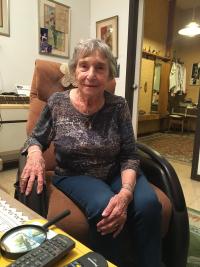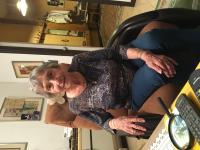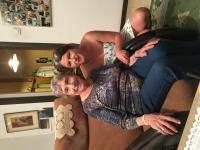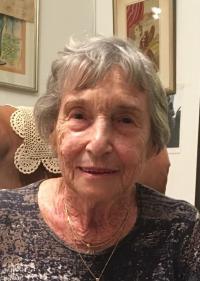“We didn´t know what happened with my father and brother, since men had to go separately from women. When we returned to Auschwitz – Birkenau for the second time, we didn´t work. In one of the barracks there were terribly many fleas. They said: ‘This barrack has to be disinfected.’ They were taken to Auschwitz, we were in Birkenau. It wasn´t far, but one had to walk through a lane without barracks. One woman from Šurany, who was in that block, went there too. Her friend was my best friend, and she came to the camp yet in 1941. Her name was Anna. As she walked, she saw men working. We didn´t have any contact with any men prisoners. She said that they walked and suddenly they saw men. She looked on the ground and noticed some labels. They picked them quickly and when they returned, they started to read them. One label was written in Hungarian: ‘We are looking for Tereza Schwartzová, Alžbeta Schwartzová, if anyone knows anything, please, give us a sign in any possible way.’ So among those working men, there was also my and her father. On the next day, another block was being moved and she switched with another girl to be able to go there and see her father. She said my father and brother were working there too. I didn´t have any paper, nor a pencil, however, our guard was one Slovak Jewish lady. I told her: ‘Edith,’ – she was really nice. You know, some guards were really mean. I told her: ‘Listen, I would need a pencil and a piece of paper just for a little while. I will return the pencil at once.’ And I wrote: ‘We are alive, I am with my mom. We are alive yet, but we´re fearful what shall follow.’ We wrote it in Hungarian. So she took it and switched once again to go and throw it in there. The men took the labels as they worked, and responded once more. My brother, who was very religious, wrote us: ‘We are very glad you are alive and together. Don´t worry. Lord will help us.’ And now I am asking: Where was God? Where was he? How did he help us? Whom did he help? Ever since then I am not religious at all. I don´t celebrate Sabbath, I don´t light a candle. I don´t go to church, only during Pesach. And not eating bread I take more as a memory of our home. And it was the feast… It was time when I used to fast for the whole time I was here, as well as in Slovakia, but for over two years we don´t fast anymore.”




